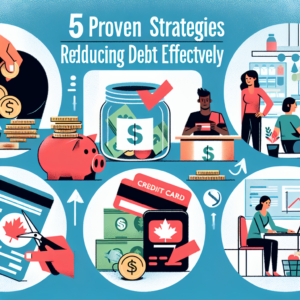In Canada, managing debt can be a daunting process for individuals facing financial hardship. Understanding debtor rights is crucial for Canadians seeking relief from burdensome debts. This article aims to provide a comprehensive guide to debtor rights under Canadian law and outline available debt relief options that can aid individuals in regaining their financial footing. By familiarizing themselves with these concepts, debtors can navigate the complexities of the financial landscape with greater confidence and clarity.
Key Principles of Debtor Rights in Canadian Law
Debtor rights in Canada are primarily governed by federal and provincial laws aimed at protecting consumers from unfair debt collection practices. Under the Bankruptcy and Insolvency Act (BIA), debtors have the right to access certain protections when they are unable to meet their financial obligations. This includes the ability to file for bankruptcy or propose a consumer proposal, both of which can provide debtors with relief from creditors while allowing them to retain certain assets. Furthermore, these legal frameworks ensure that debtors are treated with respect and fairness throughout the debt recovery process.
Another significant principle is the protection against creditor harassment. The Collection Agencies Act in many provinces outlines the ethical and legal boundaries within which collection agencies must operate. Debtors have the right to dispute debts and request verification before any collection actions are taken. Additionally, they can set limits on communication from creditors, helping to alleviate the stress and anxiety commonly associated with debt collection efforts. Such protections empower debtors, allowing them to take control of their financial situations.
It is also worth noting that Canadian law promotes transparency and fairness in lending practices. The Consumer Protection Act includes provisions that require lenders to disclose crucial information about loan terms and conditions, interest rates, and potential fees. This transparency helps consumers make informed decisions about borrowing and protects them from predatory lending practices. Understanding these key principles reinforces the importance of being aware of one’s rights when navigating the often-overwhelming world of debt management.
Navigating Debt Relief Options: A Comprehensive Overview
For Canadians seeking to address their debt problems, several relief options are available. Bankruptcy is one of the most well-known methods, providing individuals with a fresh start by discharging most unsecured debts. However, it is important to understand that bankruptcy also carries long-term consequences, including the potential loss of assets and a significant impact on credit ratings. It is advisable for individuals to consult with a licensed insolvency trustee to explore whether bankruptcy is the right option for their circumstances.
Another popular alternative is the consumer proposal, which allows debtors to negotiate a settlement with their creditors that may involve repaying a portion of their debts over a specified period. This option provides several advantages, including the ability to retain assets and avoid the stigma associated with bankruptcy. Consumer proposals must be administered by a licensed insolvency trustee, who will assist the debtor in drafting and submitting the proposal to creditors for approval. This option can be an effective way to regain financial stability while still addressing outstanding obligations.
In addition to formal insolvency options, debtors can explore debt management plans offered by credit counseling agencies. These plans involve working with a counselor to consolidate debts and create a manageable repayment strategy, often accompanied by reduced interest rates and waived fees. While these plans do not eliminate debt, they can provide a structured approach to repaying creditors without resorting to bankruptcy. It’s crucial for debtors to thoroughly research and carefully select reputable credit counseling services to ensure they receive proper guidance and support in their quest for debt relief.
In conclusion, understanding debtor rights in Canada is essential for individuals grappling with financial difficulties. With clear knowledge of the legal protections available, debtors can make informed decisions and explore various debt relief options tailored to their specific situations. Whether considering bankruptcy, consumer proposals, or debt management plans, seeking professional advice from licensed experts can pave the way toward a more secure financial future. By advocating for their rights and options, Canadians can reclaim control over their financial lives and work toward lasting stability and peace of mind.



